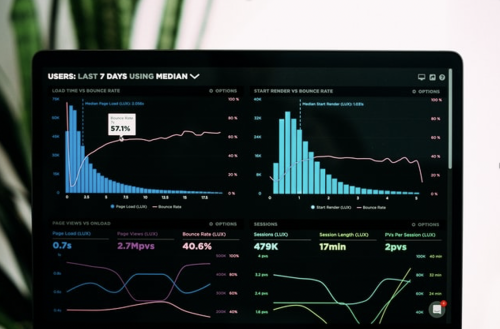Data (Big Data) is being collected in all the sectors of business and the economy. The economy of the world in the 21st century relies on the data collected from consumers to thrive. Alongside technology, one of the extraordinary feats achieved in the 21st century is collecting and storing big data.

In the 19th and 20th centuries, the moving markets, important assets, and points of interest were all different from the 21st century. In the 1800s, economies were concerned with acquiring lands and territories, mining – iron, gold, and different metals. Those in the 1900s were also all for the same and included drilling oil. The 2000s are targeted on mining and drilling, but in another context and of a different type. Gathering and storing data is the gold and diamond of the 21st century.
Full data accumulation has improved the sectors of work in the world and is better referred to as big data. Big Data is a large number of information and statistics that can be saved or processed with a conventional technique rather than the traditional way of storing data. The traditional (bookkeeping, etc.) and conventional techniques (technological algorithms, etc) of storing data have both exponentially increased in relevance. Now, there is next to nothing you can do without records or stored data.
Records, in the 21st century, are very vital for the economy of the world especially since technology is on a sporadic increase. New technology like the internet of things (IoT) is enabling the insertion of sensors in machines to communicate with humans. From 2018, IoT generated four hundred Zettabytes of information every year, taking pictures and analyzing records. Aside from the use of IoT for data collection, algorithms and digital forms (types of conventional data collection methods) have also contributed to storing intricate data and records of individuals all over the world.
Various Sectors Impacted By Data In The 21st Century
Data collection and storage has made jobs, business, and any form of work very easy and these are some of the known sectors that are:
Government and National Economy
The government is a huge user of data especially in the area of politics. Data is used to research patterns of citizens and their impact on elections or election consequences. All of the other sectors of the economy are the concern of the government. With data, governments can access tremendous amounts of applicable data critical to their day by day activities. It helps governments to settle on quicker choices, and it permits them to screen those choices and rapidly sanction changes if essential.
Entertainment
The entertainment sector runs solely on data and information and is on top of the scale for utilizing data for production. Media owners, gaming companies, TV channel owners, and video publishers have benefitted and still benefit from the digital and technological revolution that is big data. The entertainment industry collects a large amount of data that helps them gain deeper insights into customer behavior and their preferences. This is how the French authority site Jeuxdcasino.com knows many of their readers of casino reviews are actually French Canadians and therefore need information on what online casinos are available in Canada, and not only in France. The media also gains information about the programs to which customers subscribe and unsubscribe. With data like this, the preference of consumers can be catered for without having them state it clearly.
Health Care Sector
Big data technology has changed the scene of the healthcare industry. In the past, the clinical records of the patients ( illnesses and medications inclusive) at a single place as a historical record. Presently, with the presence of technology, the healthcare sector has been able to offer holistic care to the patients, improve care personalization, analyze the healthcare similarities across different hospitals, enhance the levels of care for patients and do many more things that will upgrade the standard of healthcare. This aids in distinguishing the health outcomes of a patient, predicting the preventive care strategies that need to be taken, and optimizing the overall efficacy of the hospital.
Financial Sector
The banks have direct access to the entire repository of a customer’s financial statistics. For instance, they know how much income has been credited in your account, how money went into your savings account, how money was expended to the utility service providers, and so on. These statistics act as a bedrock for further decision-making like loan services and screening, services that they are able to offer to the clients, danger assessment, go promotion of different products, etc.
Educational Sector
With the advent of classroom digitization all around the world, big data and data collection has begun hugely affecting the education industry positively as well. The world has moved from customary classroom education to video-based lectures which make learning more intuitive. This innovation will assist educational establishments to know the learning styles of students and upgrade the instructing techniques to make education more effective. This data collection will additionally help establishments to conceive techniques for meeting the career objectives of students.
The impact that data has had on the world in the 21st century is immense and other centuries are sure to benefit from the collection of important data. Data has transformed the study of how social networks operate and has also influenced the stimulated growth of the world’s economies. While there is still a debate on the positivity and negativity of data collection and big data, the impact on the world right now makes it worth embracing.
Interesting Related Article: “5 Major Applications of Big Data in daily Life“

